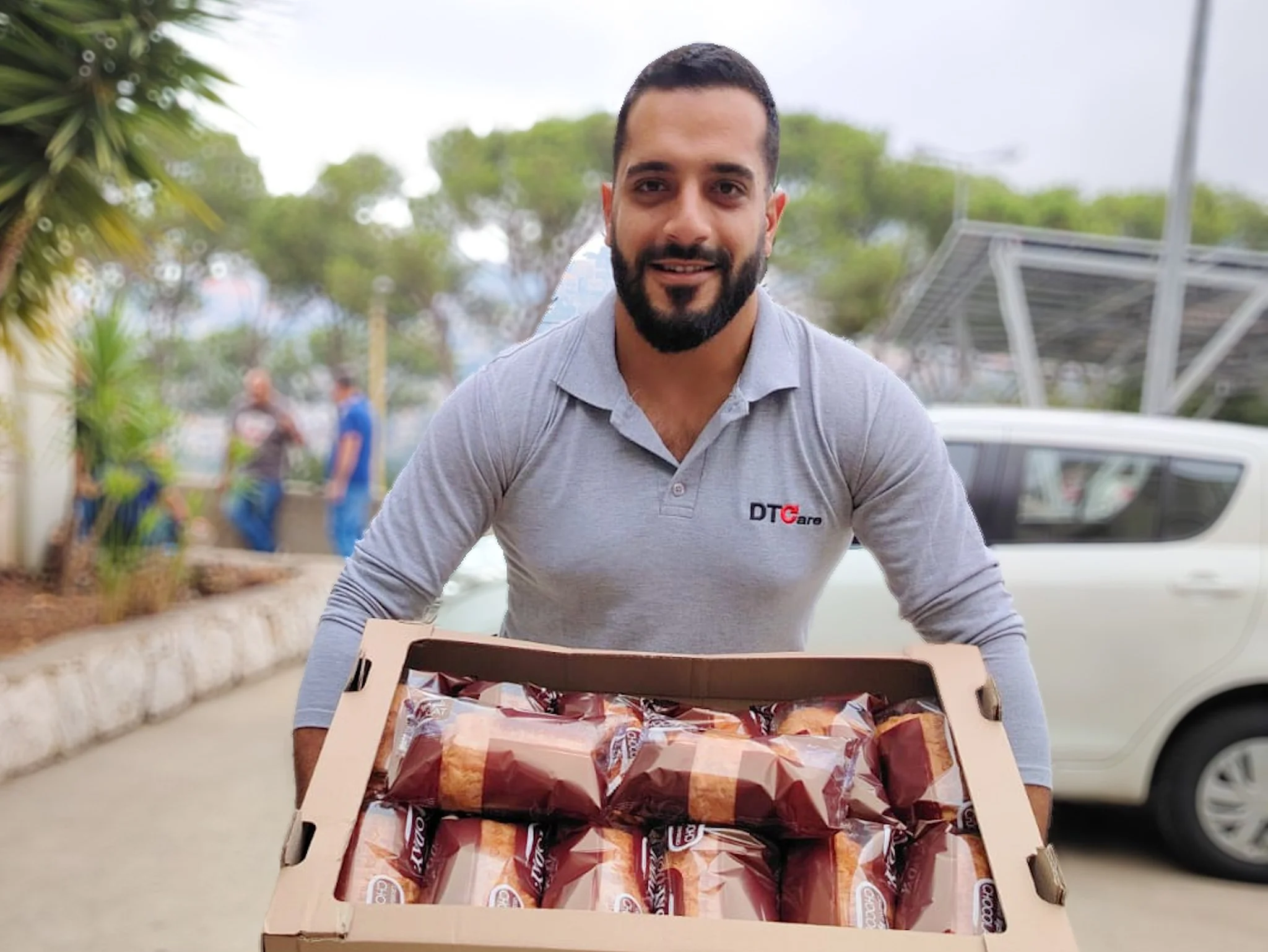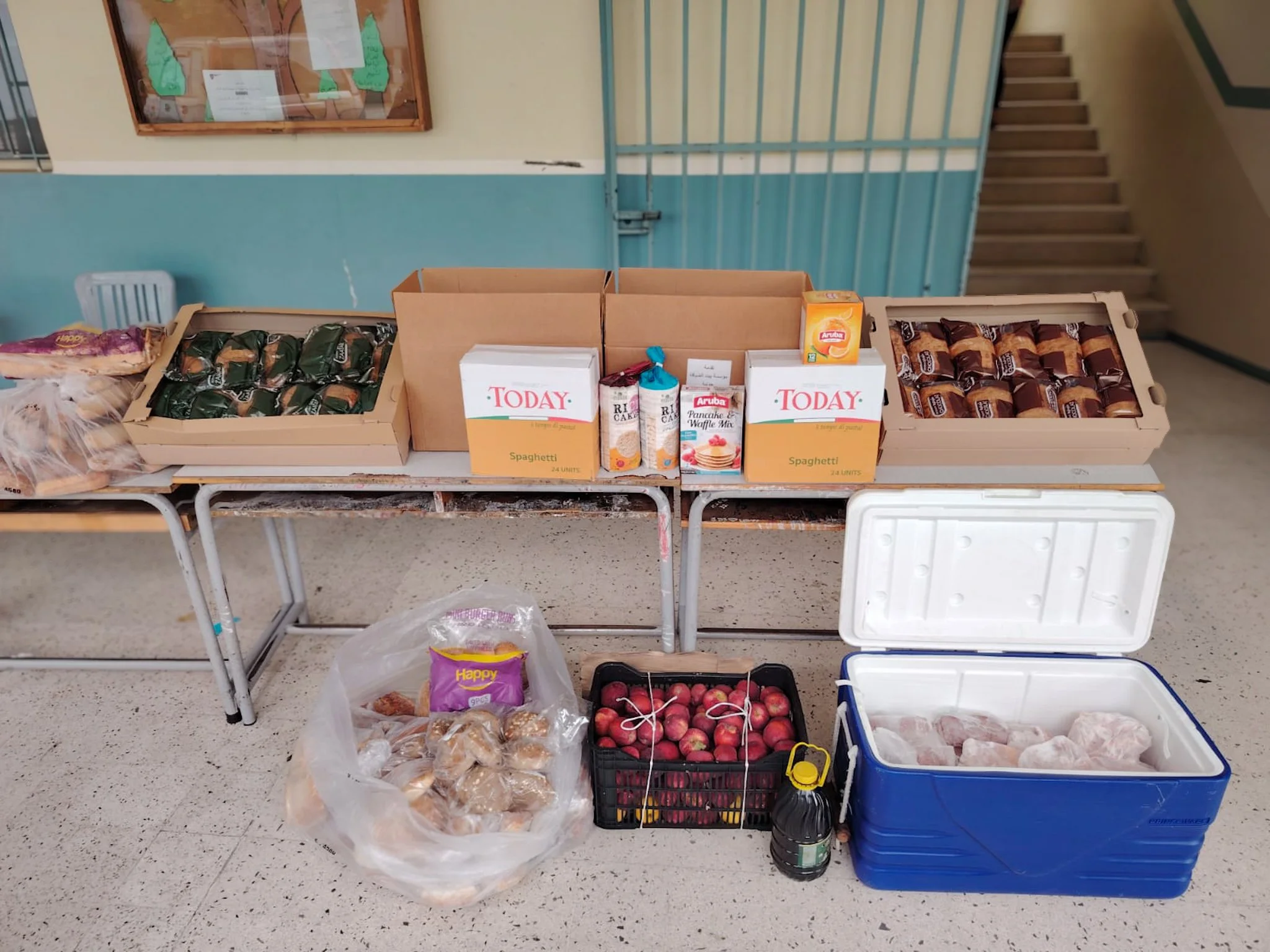- DTCare in Lebanon | Aid in Conflict -
DTCare Responds to the War in Lebanon
Navigating the Escalating Humanitarian Crisis with Continued War Relief
Amid the conflict in Lebanon, characterized by economic instability and an escalating humanitarian emergency, DTCare is at the forefront of addressing the urgent needs of affected communities. The economic downturn and conflict have strained Lebanon's infrastructure, hindering its capacity to provide essential services to its citizens. Recognizing these critical challenges, DTCare remains dedicated to tackling urgent issues such as displacement, hunger, and the increasing public fear that grips the nation.
DTCare leverages effective distribution networks and longstanding partnerships with local and international organizations to assist those most in need. Our comprehensive approach includes coordinating air and sea shipments of vital resources, sourcing food and hygiene products for local distribution, and collaborating with key partners to ensure aid reaches every corner of the affected regions. DTCare's proactive response extends beyond immediate relief, focusing on long-term stability and resilience.

The Vital Role of Humanitarian Assistance
Understanding the Threats Lebanon Civilians Face
The people of Lebanon are facing dire challenges amid escalating conflict with Israel. The country's ability to meet aid needs is severely hampered by a prolonged economic crisis. Minister Nasser Yassin highlighted that Lebanon would need $100 million monthly for essentials, yet it can only cover a small fraction without additional donor aid. Humanitarian funding is already inadequate, with only a third of the needed support received for the conflict with Hezbollah. An estimated 1.2 million people have been displaced, with the South of the country in ruins after deadly airstrikes, relying on poorly equipped public schools or makeshift shelters due to the shortage of government-funded accommodations and support. Lebanon's food supplies under an Israeli blockade would last four to five months, but diesel, crucial for powering essential services, would run out in five weeks. The situation emphasizes the urgent need for increased resources to address current and potential future humanitarian demands.
Read MoreUrgent Needs
-

Lack of Essential Services
The economic crisis in Lebanon, compounded by conflict, affects the government's ability to provide essential services. Although ports are operational, relying on Middle Eastern Airlines for relief logistics creates air capacity constraints. DTCare has delivered nearly 70,000 kilograms of essential supplies since 2020 through 14 shipments and is coordinating further air and sea shipments, including emergency medical supplies in collaboration with the International Lebanese Medical Association. DTCare also sources food and hygiene supplies for rapid distribution to families in need.
-

Displacement of Populations
With nearly 1.2 million individuals displaced due to rampant airstrikes and conflict in southern Lebanon, the country is facing a severe humanitarian crisis. Limited formal shelter options and scant governmental support compound the challenges, leaving many families without adequate protection. DTCare has partnered with local organizations like Beit El Diafeh and GoGreen to assist those sheltering in informal settings such as schools and private homes. Recently, DTCare supported 1,227 refugee families by delivering essential food and supplies, addressing immediate needs.
-

Hunger and Food Insecurity
Government and international aid fall short in adequately addressing food needs, increasing the risk of hunger among affected populations. Under a blockade similar to the 2006 war, Lebanon’s food supply is expected to last four to five months according to Reuters. Collaborating with Beit El Diafeh, local retailers, and various NGOs, DTCare effectively distributes food donations in communities including Beit Chabeb and Zouk. Our outreach has positively impacted 1,227 families, mitigating food insecurity and ensuring access to staple foods.
-

Public Fear and Economic Pressure
The conflict in Lebanon has driven up prices and heightened fear, forcing some families to seek refuge in neighboring countries like Syria. In response, DTCare is actively providing ongoing assistance by distributing food and essential supplies to the most affected regions. Our partnerships with trusted NGOs and groups help strengthen local support networks, allowing us to deliver timely and effective relief. By leveraging these partnerships, DTCare ensures that Lebanon's most vulnerable populations receive critical aid and resources amid the conflict.
Collaborations with NGOs and Government
Strength in Partnership: DTCare's Collaborative Efforts Aid Lebanon's Communities
Since 2020, DTCare has partnered with over 60 organizations in Lebanon, ensuring effective aid delivery. Key collaborations during DTCare’s first-wave emergency response to the conflict include:
GoGreen
Together, we have distributed aid across seven NGOs in regions like Aaley, Beqaa, and Zahle, reaching over 500 displaced individuals. Our efforts extend to Chouf and Jezzine, supporting local hospitals with necessary aid.
Beit El Diafeh
DTCare and Beit El Diafeh are partnering to distribute food to temporary shelters, our collaboration impacts over 250 families from the south, ensuring essential supplies reach displaced households.
Lebanese Armed Forces (LAF)
DTCare supports veteran families through annual events and seasonal camps featuring educational and recreational activities. Each shipment allocates supplies to support LAF hospitals and clinics.
Lebanese Scouts
DTCare and the Scouts actively support families displaced by conflict with food and cooking essentials. During our visit to Mar Youhanna in Aakaibe, we delivered essential items and 40 kilograms of beans, rice, and chickpeas. There is an urgent need for academic support, and we are currently seeking a volunteer teacher to assist 13 children.
DTCare's Logistical Capabilities and Past Performance
DTCare’s Efficient Logistics and Proven Response in Lebanon
Freight and Collaboration Excellence
DTCare, in cooperation with DTGruelle and trusted local partners, has established efficient logistics pathways for timely supply deliveries. Our primary ocean freight route spans from New York, NY, to Port Tangier, Morocco, and finally, Beirut. Air freight operations utilize routes from Chicago, IL, through Doha, to Beirut, ensuring swift aid arrival. Partnerships with Qatar Airways and the Lebanese Ministry of Public Health enhance our ability to expedite emergency shipments.
Storage and Distribution Networks
Situated in Roumieh, DTCare’s storage hub facilitates effective aid distribution. Strong alliances with local NGOs and volunteers ensure rapid supply delivery to Lebanon's most affected communities, showcasing our commitment to operational excellence.
Proven Past Performance
DTCare's immediate response to the Beirut Blast included multiple airfreight shipments and a 40-foot container of vital supplies, demonstrating our capability to mobilize quickly and provide targeted support during emergencies. We remain committed to ongoing relief efforts in Lebanon amid the escalating war.
Emergent Needs and Continued Assistance
With increased funding, DTCare aims to:
1. Supply Baby Essentials
Address the critical shortage of baby formula and diapers. Enhanced funding will enable increased shipments to meet urgent infant care needs.
2. Provide Essential Food Supplies
Meet the rising demand for staple foods like bread, rice, and pasta. Expanded resources will bolster our ability to secure and distribute these necessities to vulnerable families.
3. Expand Reach and Capacity
Financial support will amplify our capacity to source local supplies and secure international aid, ensuring consistent critical supply flow to those in dire need.
Get Involved
DTCare is committed to providing vital assistance in Lebanon
Are you considering getting involved or donating to support our efforts?
Please contact us or visit our donate page.








